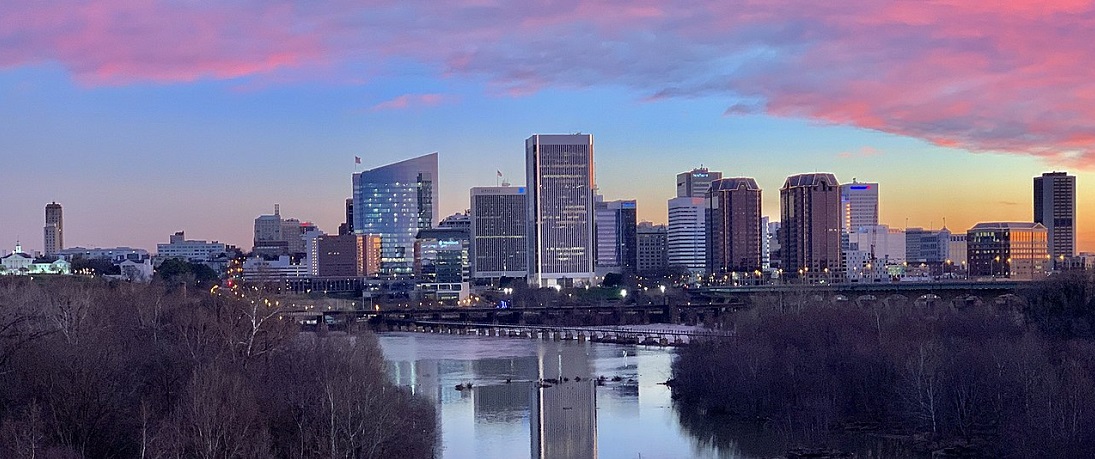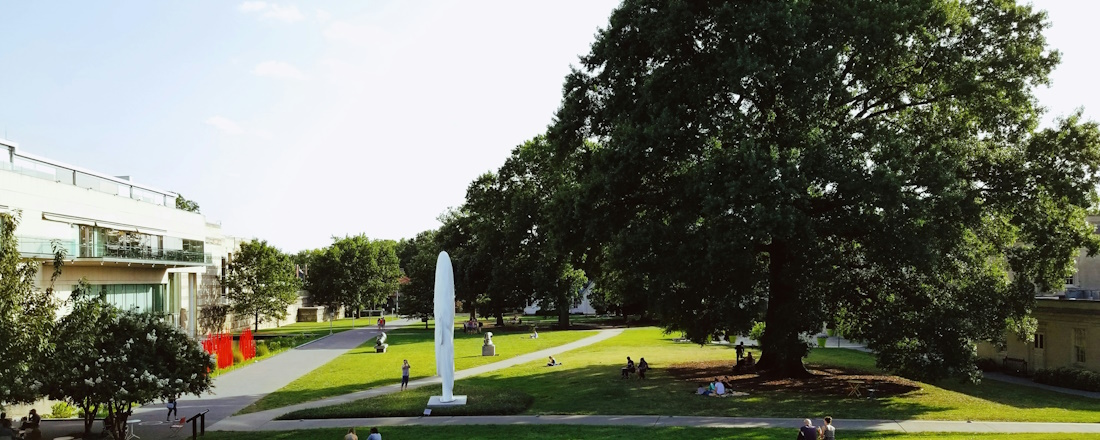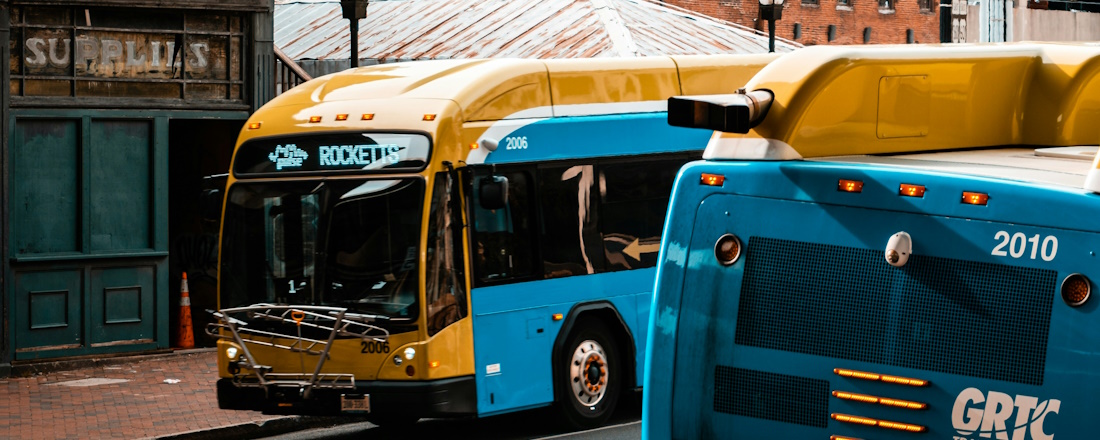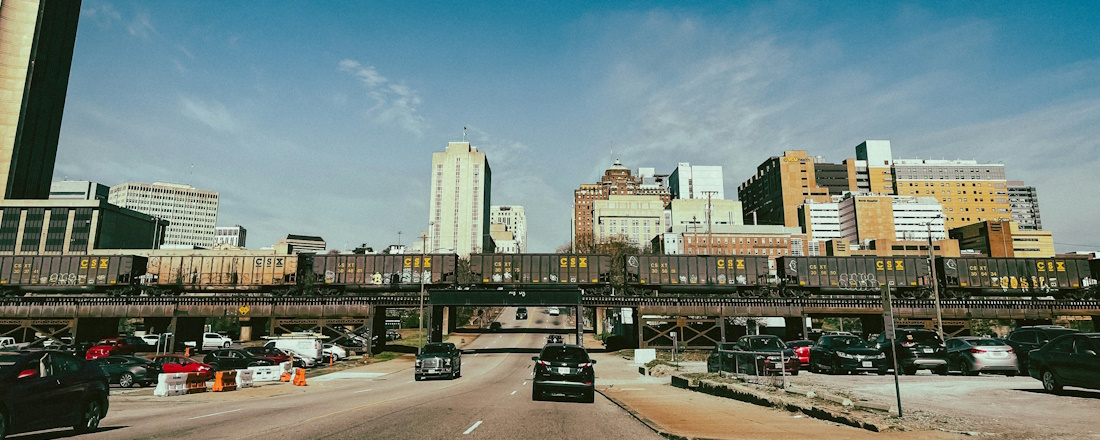Renting accommodation in Richmond has become an appealing choice if you want to explore the Virginian capital’s laid-back lifestyle and promising economic opportunities. If you’re considering a move to Richmond, you should research your housing options, scout out suitable neighbourhoods and decide whether to buy or rent.
The choice of whether to buy or rent depends on how long you plan to stay, your budget and the housing market's current state. Many people new to Richmond rent accommodation first and set down permanent roots once they have a feel for the city. With the influx of new residents, the rise in housing demand, and the city’s robust economy, purchasing a house in Richmond is often considered a solid investment.
Areas and suburbs in Richmond

Your choice of neighbourhoods in Richmond is a major consideration if you’re planning your relocation. The city has five main districts: Downtown, East End, North Side, Southside and West End. Each area brims with its own unique flair. It’s wise to do a thorough recon before deciding where to call home. Short walks, online forums and word-of-mouth feedback can help you figure out whether you fancy a bustling, Bohemian vibe or prefer a quieter suburban pace.
Some trendy spots include Scott’s Addition, where you’ll find an artsy atmosphere and renovated lofts in historic warehouses. Manchester lies just south of the James River, popular among creative professionals who value easy access to the river’s outdoor attractions. Downtown combines sleek apartment living with a slice of history, and it’s energised by tech startups, boutique shops and artistic venues.
If you prefer a family-focused setting, you might look at Lakeside in Henrico County. Chimborazo is another charming option, famous for centuries-old brick homes, green parks, and a friendly neighbourhood spirit.
Best Places to Live in Richmond
Types of accommodation in Richmond
The different types of accommodation in Richmond is an essential consideration if you’re looking to settle in the city. You’ll find a mix of historic charm and modern developments, especially in central areas like the Fan District or Carytown, known for lovely late-19th and early-20th century row houses, American Four Squares and Cape Cod homes. Suburban spots such as Tuckahoe, Glen Allen and Mechanicsville favour brick ranches and colonial-style houses with large yards and leafy streets.
Apartments
Apartments in Richmond are suitable if you prefer a self-contained unit with modern conveniences. Many are located in the city centre, where you’ll enjoy a vibrant urban lifestyle and quick commutes. The Fan District and areas around Fountain Lake are dotted with older conversions alongside upscale new builds. Apartments often mean less upkeep and fewer responsibilities, ideal if you’re a busy professional who wants to focus on work and play.
Condos
Condos in Richmond strike a balance between apartment living and owning a traditional house. You’ll often benefit from shared amenities, including gyms, pools and communal gardens. Some trendy complexes feature stylish loft conversions near the James River, appealing to creative souls and digital nomads. Maintenance fees typically cover communal spaces, so you can spend more time haunting Richmond’s cafés or strolling along the riverbanks.
Houses
Houses in Richmond give you more freedom, with extra space for gardens, home offices or family gatherings. Suburban neighbourhoods like Short Pump or Glen Allen tend to have spacious single-family homes on larger plots, often with garages and big lawns. The city also has colonial mansions, rowhouses (townhouses) and bungalows if you adore classic architecture. Many of these suburban enclaves boast top-notch schools and tree-lined roads, perfect for quiet evenings and a sense of community.
Finding accommodation in Richmond

Finding accommodation in Richmond is essential if you’re ready to put down roots in the city. It’s vital to outline your budget, confirm which amenities you need, and plan how far you want to be from work or school. You should also consider the space you need, especially if you anticipate a growing household or desire a dedicated home office.
The Richmond property market can be competitive. Many buyers and renters re-enter the market when interest rates stabilise or new listings appear, so properties in prime areas often receive several offers in quick succession. It’s prudent to act swiftly if you spot something you like and stay flexible in negotiations. Getting pre-approval for a mortgage (if you’re looking to buy) also highlights your credibility as a serious buyer.
Online searches are a brilliant way to begin. Property portals, social media and local community forums can give you an early heads-up on what’s available.
You might also hire a reputable real estate agent to streamline your search. Check credentials, read reviews and seek personal recommendations. Many agents have deep insights into neighbourhood dynamics, current price trends and upcoming developments, which can help you secure a deal on a home that suits your lifestyle.
Useful links
Renting accommodation in Richmond
Renting accommodation in Richmond is a major step if you plan to stay in the city for a while. Demand is rising, so be ready to act swiftly when you spot a place you like. It’s prudent to gather essential documents beforehand, such as proof of identity, income, rental history and personal references. A comprehensive application can impress landlords and speed up credit and reference checks.
Making an application
Making an application typically involves contacting the landlord or agent directly once you find a suitable property. They may request a valid ID, recent pay stubs, bank statements and a letter from your employer. A solid credit record also enhances your credibility. If you’re moving from abroad, consider opening a US bank account and securing a social security number to streamline the process.
Leases
Leases in Richmond typically run for a year or more. Although everything must be stated in writing, you may be able to negotiate shorter terms by offering incentives such as a slightly bigger deposit or the option of subletting. Speak up if you foresee the need to end the lease early. Some landlords will include a break clause that spells out the process and fees involved.
Tenants in Richmond enjoy certain legal rights under the Virginia Residential Landlord and Tenant Act (VRLTA), including the right to a habitable property and reasonable privacy. You also have responsibilities, such as paying rent on time, reporting maintenance issues promptly and respecting any pet or noise policies stated in the contract.
Deposits
Leases usually require a security deposit of about one month’s rent, refundable after move-out if there’s no damage. Always conduct a detailed inventory at the start and end of your tenancy to protect your deposit.
Terminating the lease
The process for terminating your lease depends on your specific agreement. Month-to-month leases usually require at least 30 days’ written notice before the next rent date, while fixed-term contracts may impose penalties if you leave early without cause. Negotiate with your landlord if circumstances change, but remember that breaking a lease might cost you the remainder of the rent or some portion of your deposit.
Provide written notice and retain a copy for your records. This helps prevent disputes about dates and deposit returns. If you have questions about tenant rights, check the resources from the Virginia Department of Housing and Community Development. It’s always best to leave the property in good shape and maintain open communication with your landlord.
Renting Accommodation in the USA
Utilities in Richmond

Utilities in Richmond are an important part of settling into your new home. Always check your lease to see which services are covered, since landlords often include water and electricity but leave extras such as internet, cable TV and waste removal to the tenant. It’s worth contacting local providers or your landlord directly if anything is unclear.
Electricity and gas
Electricity and gas in Richmond follow a regulated market, so your main suppliers will likely be Dominion Energy for electricity and Richmond Gas Works for natural gas. You can review their websites to consider different pricing structures and any renewable energy options that may be on offer. Contact their customer service lines if you have questions about your plan or need help transferring your account.
Water in Richmond
Water in Richmond generally comes from the city’s public supply, which is treated and monitored to meet health standards. Remain on the lookout for odd smells, tastes or discolouration. Temporary issues might arise after storms or scheduled maintenance, so calling your provider’s helpline can clarify matters. If the water still seems off, you could run home test kits or seek a plumber’s advice. The City of Richmond also publishes an annual Consumer Confidence Report that outlines local water quality and advisories.
Bins and recycling in Richmond
Bins and recycling in Richmond go hand in hand with keeping your home tidy and the city green. The Central Virginia Waste Management Authority (CVWMA) oversees residential recycling, which typically includes rinsed aluminium and steel cans, glass bottles, certain plastics, and flattened cardboard. Items such as plastic bags, foil and Styrofoam aren’t accepted in standard recycling.
Collection schedules run Monday through Thursday on alternating Blue and Red weeks, and you should have your recycling cart out by 7am on your scheduled day. You can check pickup times by entering your address into CVWMA’s online tool. Household hazardous waste, such as batteries, paint or solvents, requires special disposal.
Useful links












